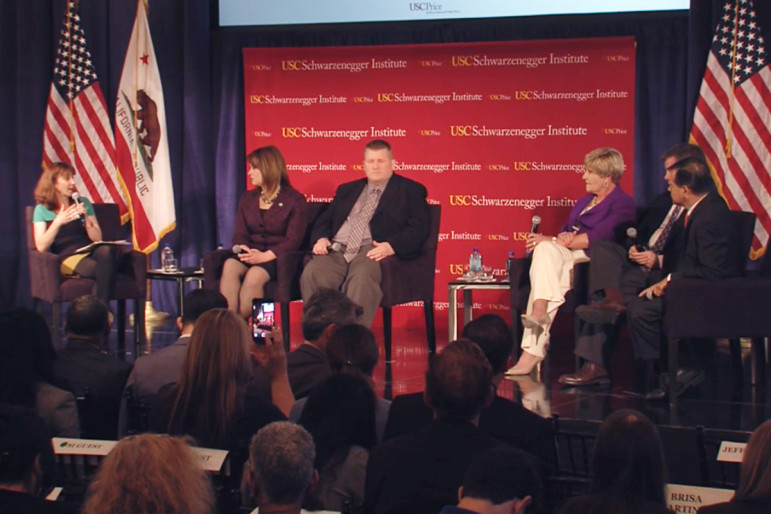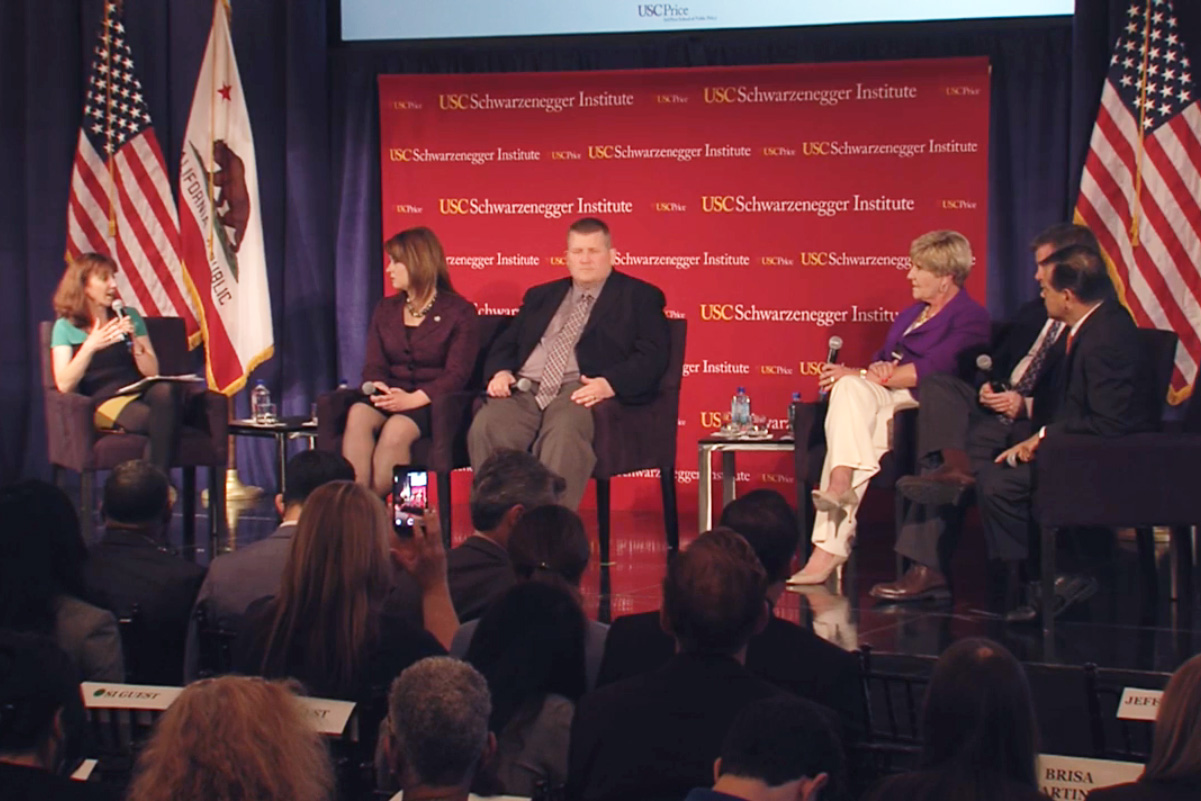
Afterschool Alliance
Afterschool Alliance Executive Director Jodi Grant leads discussion with mayors of five U.S. cities at the National After-School Summit in Los Angles on Tuesday. Mayors said that after-school programs reduced crime in their cities.
After-school programs are helping reduce gang activity, crime and child obesity, five mayors of U.S. cities said Tuesday at the National After-School Summit, a one-day conference in Los Angeles.
Fort Worth, Texas, had a gang issue, said its mayor, Betsy Price. In response, the city put money toward after-school and late-night basketball programs and crime went down, she said.
Mayor Jeffrey Lunde, of Brooklyn Park, Minn., said youth crime went down 41 percent after his city created after-school programs. “We’re not a big city,” he said. “We don’t have money to gamble.” But funding after-school programs provided a return, he said.
Mayors Karl Dean of Nashville, Tenn., and Cherie Wood of South Salt Lake, Utah, agreed that investment in after-school programs had an impact on crime. Wood cited a 64 percent drop in youth crime in South Salt Lake.
While crime rates overall have dropped in U.S cities, these mayors linked the drop to keeping kids occupied in positive ways in the afternoon.
In Santa Ana, Calif., about 40,000 children are in after-school programs each day, said Mayor Miguel Pulido.
California currently spends more money on prison incarceration than on higher education, he said. It’s important to invest in youth at an early age to help them go in positive directions, he said.
Santa Ana is focused on reaching children at an early age — third grade and earlier — Pulido said.
Mayors also said community partnerships allowed them to extend their dollars further.
“Libraries are a wonderful ally for after-school programs,” Dean said. The public library is a key partner in Nashville, he said, providing facilities and programming.
Fort Worth partners with The Wallace Foundation and private donors to operate SPARC (Strengthening Programs through Advocacy, Resources and Collaboration), which helps parents locate after-school programs. It also tracks and evaluates those programs, Price said.
Fort Worth leaders were also concerned about child obesity. Two and a half years ago the city started the FitWorth program to encourage exercise and healthy activity in schools, families and workplaces. Physical education teachers, for example, led after-school running clubs. Teams in schools tried to outdo each other in fitness activities and healthy eating.
“The kids were on fire about it,” she said. Four thousand have already reduced their weight to a healthy level, and 30,000 have signed up for the program this year.
“Businesses will step up if city councils and mayors ask them to,” Price said. “You can raise awareness of how critical after-school projects are.”
The National After-School Summit was co-hosted by the University of Southern California Schwarzenegger Institute, the Afterschool Alliance and the After-School All-Stars. Former Gov. Arnold Schwarzenegger and former U.S. Secretary of Education Ron Paige headlined the event.
































